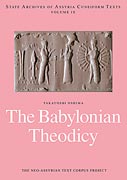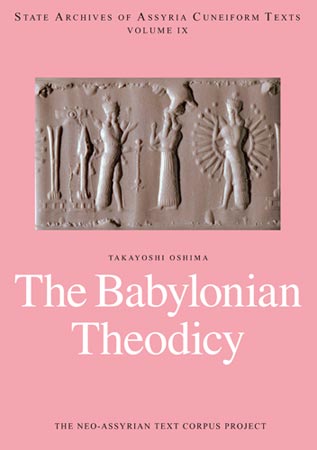The Babylonian Theodicy
Takayoshi Oshima
The Babylonian Theodicy is a lengthy dialogue between two learned men, the “Sufferer” and the “Friend,” taking the form of an acrostic poem divided into 27 stanzas. Each stanza is exactly 11 lines long and represents a speech by one of the two speakers mainly on social injustice and piety, those of the Sufferer alternating with counterarguments of the Friend. The text unquestionably is a literary masterpiece and, as one of the most important pieces of Mesopotamian wisdom literature, a must for every aspiring Assyriologist. Because of its many affinities with the biblical book of Job, it also is of obvious interest to biblical scholars, theologians, and students of Ancient Near Eastern religions.
- Description
- Table of Contents
- Subjects
This volume, based on nine different manuscripts (two of them new) and numerous new joins, offers the most complete edition of the text available so far. It is now possible to fully or partially recover 272 of the original 297 lines of the composition. The cuneiform text, sign list and glossary attached to the edition make it possible for the first time to read the entire composition in class. The volume also contains an up-to-date introduction to the text, a bibliography of previous studies, and a detailed philological commentary.
ACKNOWLEDGEMENTS
INTRODUCTION
Remarks on the Literary Style
The Author and the Date of Composition
The Story
The Message of the Babylonian Theodicy I: The Three Major Points of the Friend
II: The Last Argument of the Sufferer and the Friend’ s Response III: The Prayer of the Sufferer
The Source of the Adversity
The Position of the Author
The ‘Readers’ of the Babylonian Theodicy
The ummânus
Apprentices
The Person Qualified for the ‘Scriptures’
Concluding Remarks
MANUSCRIPTS
BIBLIOGRAPHY
CUNEIFORM TEXT
TRANSLITERATION
TRANSLATION
PHILOLOGICAL NOTES
GLOSSARY AND INDICES
SIGN LIST
Also of Interest
Mailing List
Subscribe to our mailing list and be notified about new titles, journals and catalogs.





